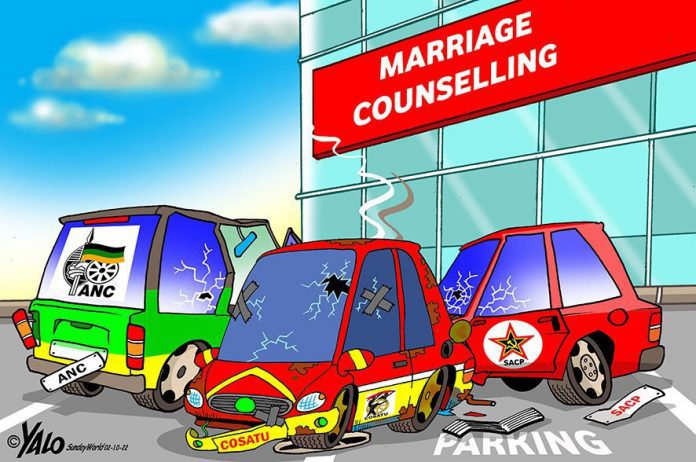It has become difficult to put any degree of hope and trust in any of the local coalition governments in light of the widespread chaos that have become synonymous with multi-party governance in most cities across the country.
So dire and untenable has the local government situation become, the electorate no longer knows where to turn to and might be wondering if this is really what the promise of better service delivery means in practical terms.
Listening to Dada Morero’s remarks after he was elected unopposed (following the DA’s walk-out) on Friday to serve as executive mayor of Johannesburg, many citizens in the city would correctly want to know why his promise to “develop and grow Johannesburg to a world-class African city that it once was” should be taken seriously this time around.
Ordinary people have become accustomed to rhetorical platitudes, repeated by politicians across the political spectrum when they seek the endorsement of citizens, who receive no dividends for the vote they entrusted to political parties.
Morero’s comrade, who is also the governing party’s national spokesperson, Pule Mabe, could also not resist sloganeering as he immediately promised that they (the ANC) “are taking [the] city to glory days”. Whatever that might mean, we wish Mabe had tried to adequately spell it out to residents.
But this is the attitude South Africans have come to expect – platitudes that are not matched by action.
When the ANC surrendered power to the DA-led minority coalition government in 2016, Johannesburg had by then turned into a pigsty, riddled with corruption and lack of development.
Apart from not having secured victory at the polls, the DA-led minority coalition – just like the one we saw dramatically collapse this week – did not stand the test of time. It was also based on political expediency rather than shared principles of governance.
Perhaps the point to be made is that while coalition governments work in other matured jurisdictions such as Germany, South Africa has utterly failed in that regard. The ingrained culture of political expediency is making such arrangements susceptible to political machinations.
The question is if democratic principles are to be strictly adhered to, why would a political party such as COPE, which received a minuscule 0.25% of votes (with only one council representative) at the 2021 municipality polls, be rewarded so handsomely with a position of council speaker? Could this be attributed to political shenanigans, or could there be another cogent explanation to rule out the question of behind-the-scenes chicanery?
We should also ask in what form does the idea of minority-led coalitions serve the will of the people?
These arrangements are susceptible to being easily torpedoed by the party that happens to have received the most votes, although having failed to garner an outright majority.
Legislators must perhaps start looking into election re-runs rather than impose those marriages of political convenience, which have brought chaos and instability at local governance level.
Follow @SundayWorldZA on Twitter and @sundayworldza on Instagram, or like our Facebook Page, Sunday World, by clicking here for the latest breaking news in South Africa. To Subscribe to Sunday World, click here.
Sunday World



